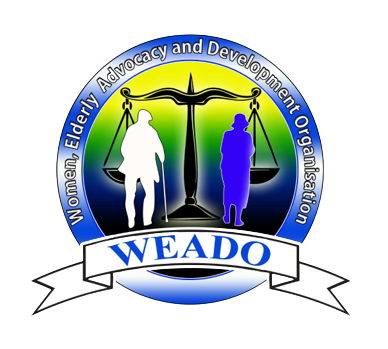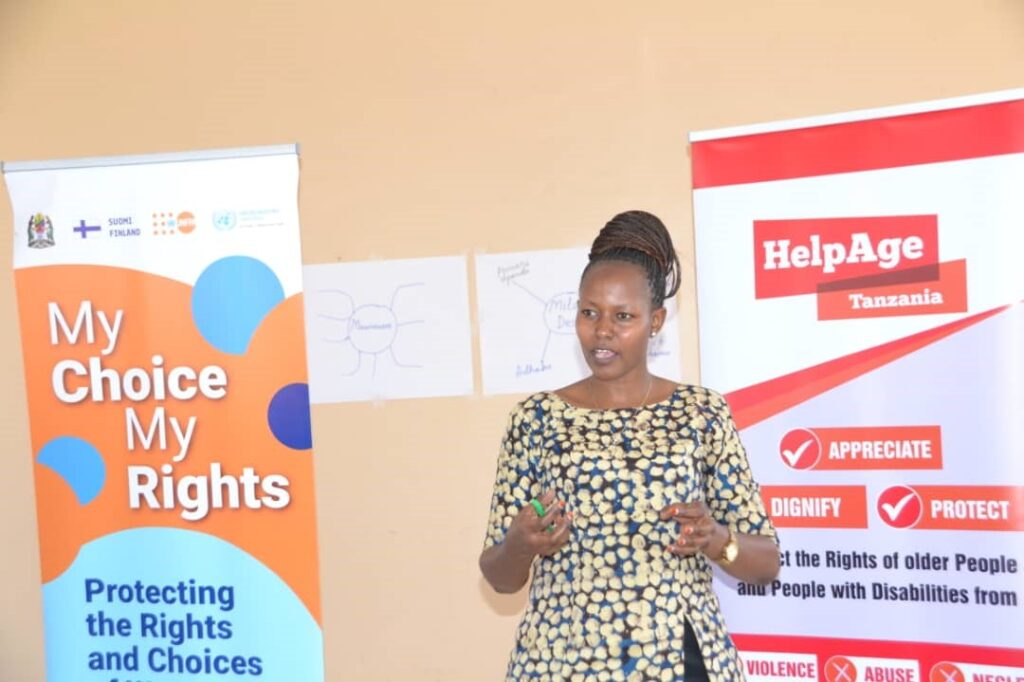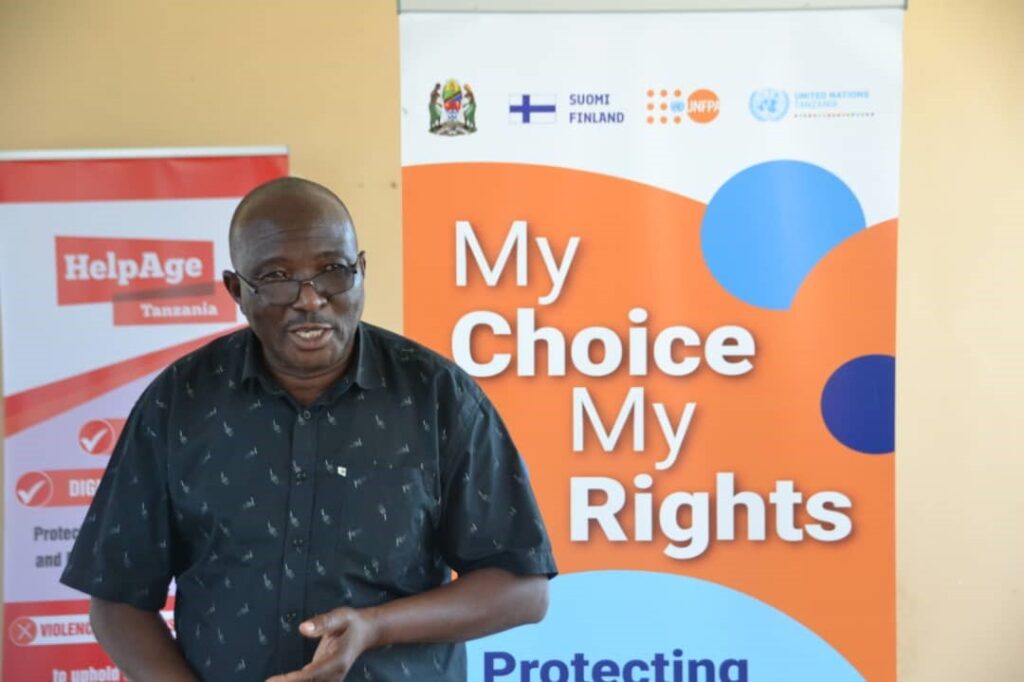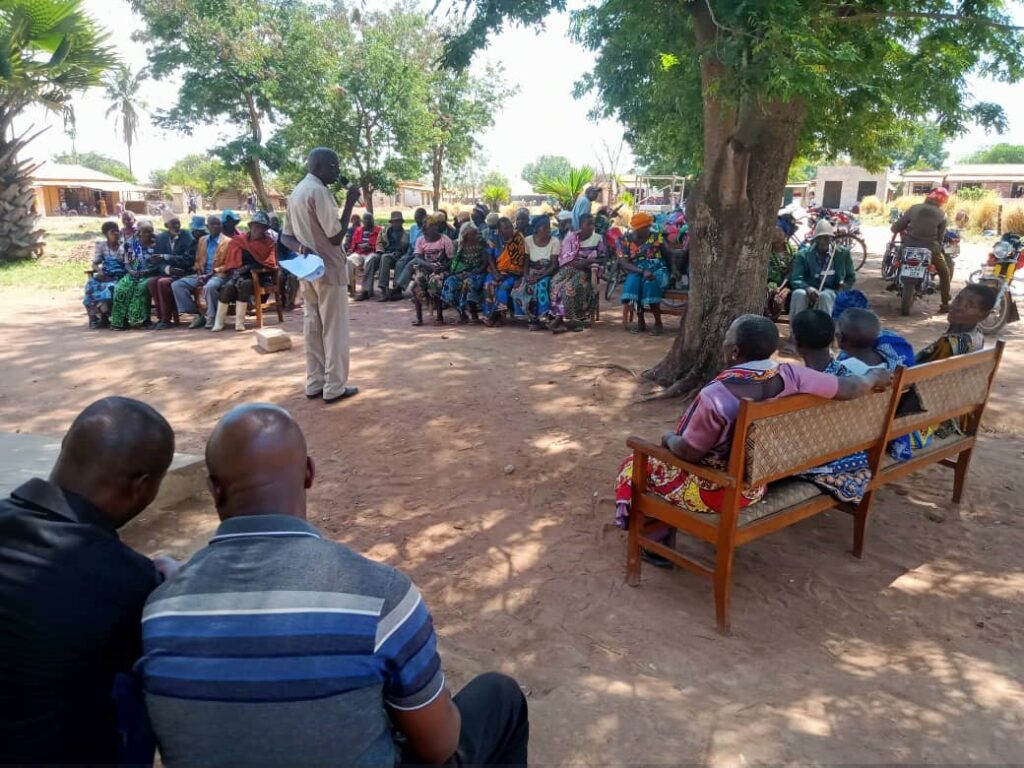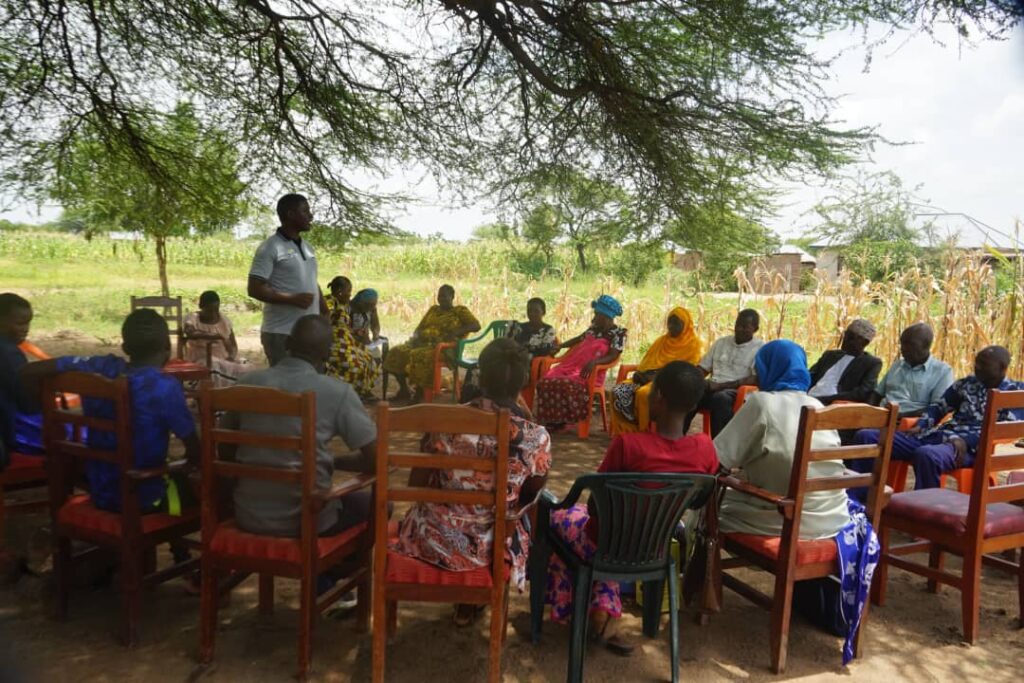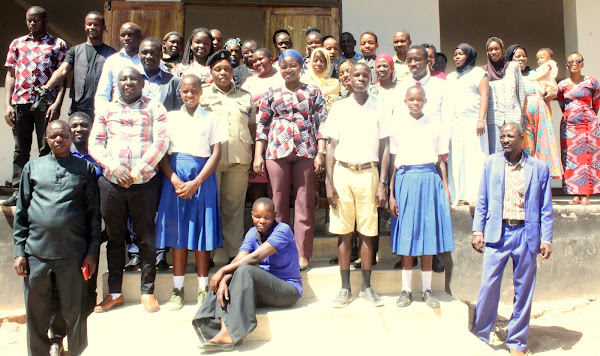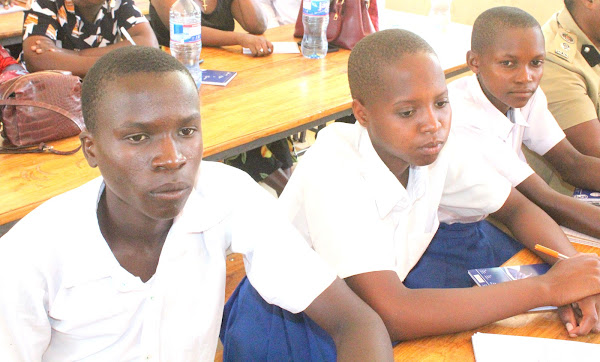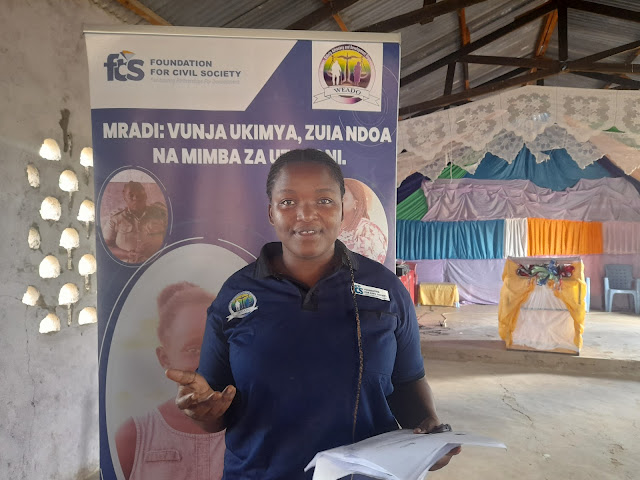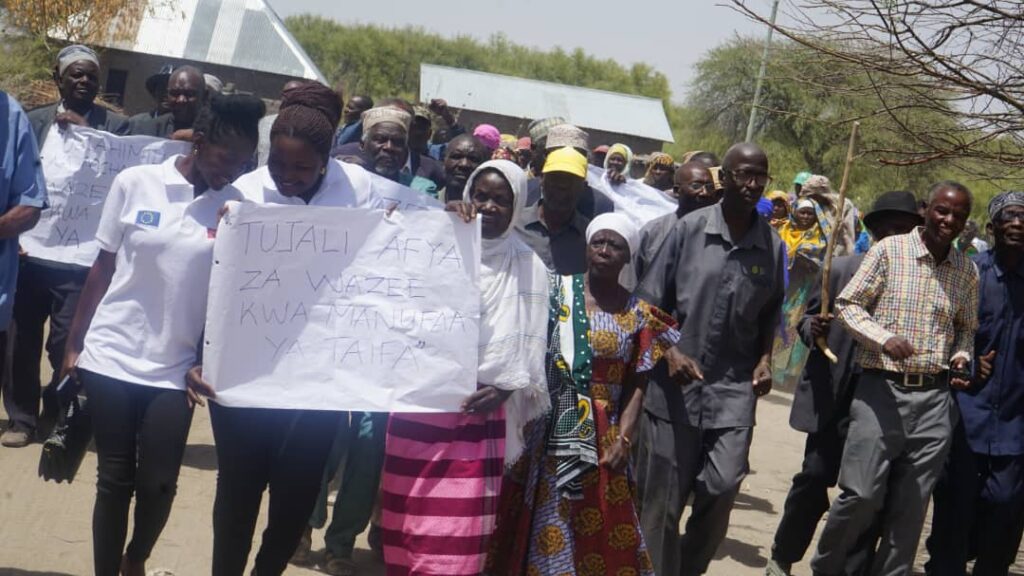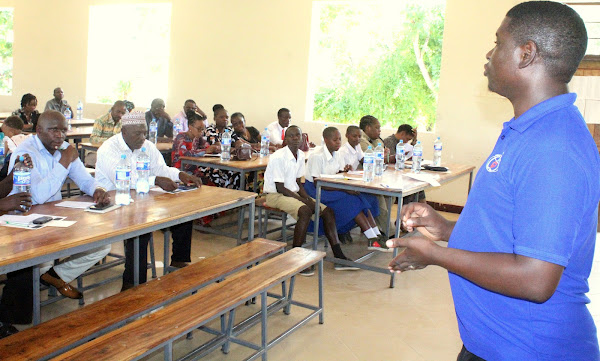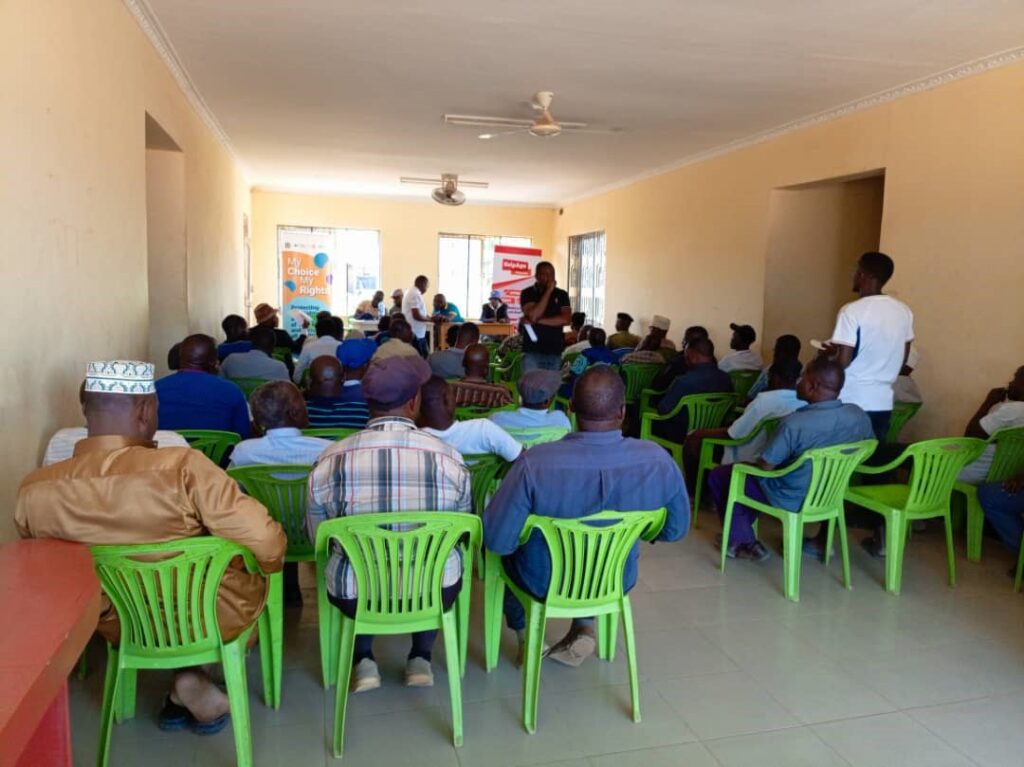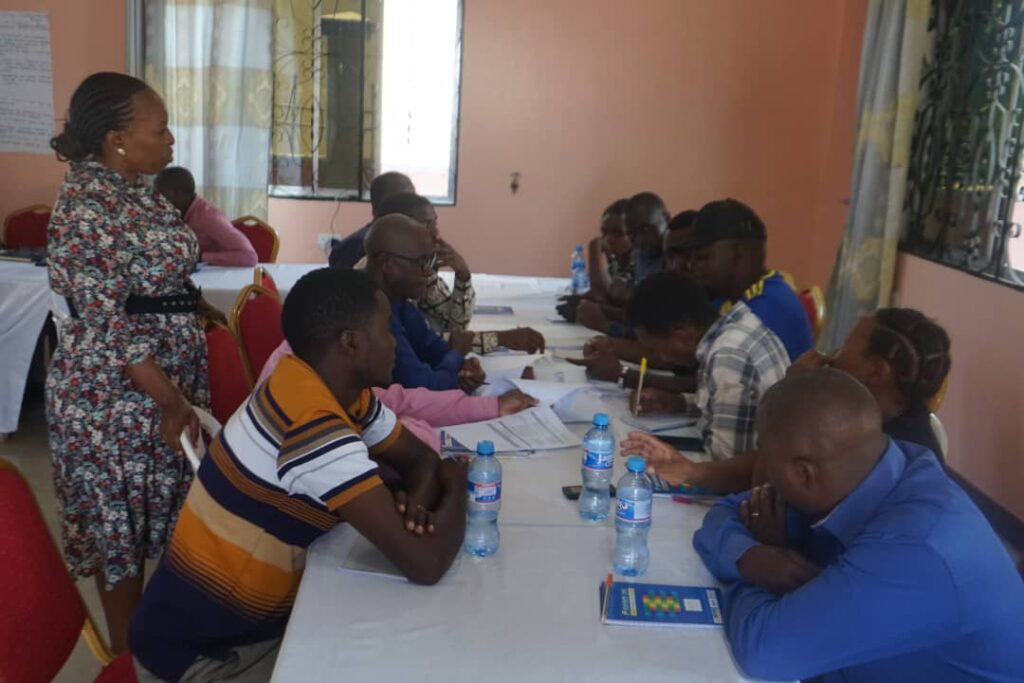PROJECT: STOP CHILD MARRIAGES AND EARLY PREGNANCIES – 2016 TO 2021
This was a five-year prevention based initiative whose goal was to contribute to reducing the rate of child marriages and teenage pregnancies. Being funded by FIRELIGHT FOUNDATION USA under the Lead Partner Model, WEADO implemented this project at three Wards namely; IBinzamata, Chibe and Kizumbi. WEADO made a great deal of progress including surfacing real data on actual rates of child marriage, engaging families, schools and communities to look at root causes so they can solve the problem themselves and working with the District and Ward government to track and address individual cases. But more importantly, communities reported reductions in child marriages and pregnancies and a significant increase in local understanding of the problems of child marriage and in the communities’ desire to stop this practice. This is due to the fact that Shinyanga Region has the highest prevalence (59%) of Child Marriages and Early Pregnancies (Human Rights Watch report -HRW, report, 2014 & UNICEF Press Release, 11st October, 2012). The baseline conducted discovered that Sukuma communities in Shinyanga District view girls as source of income, to be exchanged for cattle and other wealth assets; hence families are anxious to marry their girls of when they are still young. Other factors include; insufficient sensitization of the community on Child Protection and harmful effects of child marriage; illiteracy and inadequate awareness of girls and the community at large of health, legal and economic implications of child marriages, also influenced by inadequate provision of Sexual Reproductive Health Rights Education to girls in and out of schools. The effects of the problem stated are; the highest number of girls dropping outs from school due to child marriages and pregnancies. Furthermore they suffer from many other secondary problems which include divorce, death, birth complications, increase poverty, diseases, that is. exposure to risk of Sexually Transmitted Infections (STIs) and HIV/AIDS, child bearing/pregnancies, loss of status/rights of childhood, dropping out from school and limited access to education continuation to victims, increased patterns of dependence and vulnerability to decision making by girl children and economic stagnation relatively affecting girl children particularly from the poor families. The initiative focused on system strengthening, awareness creation, support and advocacy. The fund provided was USD 110. Specifically, the project intended;
- To empower Children to recognize child rights, self-protection and report incidences of child abuse including Child Marriages.
- To improve parenting skills among Parents and caregivers so as to increase child protection and positive parenting at family and community level.
- To strengthen child protection systems to make them active and accountable in dealing and reporting incidences of VAWC.
The initiative contributed to;
- child marriage was reported by community members to have reduced, particularly in the Shinyanga urban areas
- increased school enrolment and completion by girls and boys in ward-level government schools
- reduction in members of the child protection committees seeing infants abandoned by mothers
- increased number of children passing standard seven and continuing to secondary school
- decreased rate of teenage pregnancies
- reduction of defilements of girls which used to occur during traditional dances, at water wells, bushes, and on the way to school and homes
- increased numbers of girls going to school
- increased numbers of girls – those who had left school for marriage or other reasons – returning to school
- increases in men’s support of girls’ education
- new bylaws banning child marriage adopted by community leaders and councils
- increased household incomes, allowing parents to support their girls’ education
This was a six months initiative deliberately designed to respond to unprecedented COVID-19 situation whose objectives were;
- To improve knowledge and skills on COVID-19 prevention
- To improve nutrition status among young mothers and children aged 6 years to increase body immunity against COVID-19
iii. To help reduce stress among the core target and hence increased psychological wellbeing increased household income and improved parental care.
- To contribute to reducing morbidity rate.
The initiative was implemented at Chibe Ward and it was funded by FIRELIGHT FOUNDATION USA.
The initiative targeted;
- Children aged 0-6 years
- Young mothers with children aged birth 0-6 years
- Teen pregnant girls
- Families with children between 0-6 years.
PROJECT IMPACTS
- The project has contributed to the improvement of nutrition status, personal hygiene for 30 families and their children as well as improved household income.
- Decreased malnutrition to children in the community. It was revealed that two families, from Chibe and Mwamapalala Street with Children who had Malnutrition case before the project, but after the implementation process of the project the children are now in better condition. Also, Quarterly Ward Nutrition Report (July – October 2020) revealed that there is improvement in nutritional status as three (3) children (2 children from selected 30 families) with red starvation status changed to yellow starvation status. See the attachment
- Improved availability of vegetables to 30 families’ hence better nutrients addition for children diet.
- The project has succeeded facilitating the community in taking preventive measures to pandemic diseases (COVID-19), 6 of out of 30 families found without toilets at the beginning but all of them have constructed toilets. We did not support them with fund to construct the toilet but what we did was awareness creation on importance of having toilet and good hygiene behavior.
The project major focus was to address all forms of violence against women and children through Strengthening collective Movement and capacity among women groups, Community Groups, Religious institutions, intergenerational groups, dialogues, mass media and traditional institutions is therefore imperative at the moment when the implementation of the NPA-VAWC to ensure there is coordinated efforts for responding positively to violence against women and children. The project was implemented at Masengwa Ward in Shinyanga District Council. The proposed intervention aimed at addressing these key gaps; (I) Limited awareness among community members on women and children violence, abuse and neglect and (II) Limited advocacy initiatives for the implementation of coordinated NPA-VAWC frameworks at Ward level. The project was funded by Women Fund Tanzania-Trust (WFT-T)
Specifically, the project intended to ensure that;
- NPA- VAWC Members that are active and work in line with NPA and following their roles, responsibilities and being accountable on Ending Violence against Women and Children.
- Women groups and Junior Council Members are able to plan and manage the implemented activities and ready to take action against harmful cultural and traditional practices leading to Violence against Women and Children for project sustainability.
- Men use their ability and influence to participate in serving, caring women and children and take action to counter and stop harmful traditional practices from household and discriminatory gender norms, leading to Violence against Women and Children.
PROJECT IMPACTS
- Increased Local Authorities Accountability: The target Ward (Masengwa), has mainstreamed women and children agenda (Protection) in their action plans. They have recently developed and ratified by-laws on girl child protection. The by-laws state that a girl child is not allowed to be involved in herding cattle (Homestead herding), instead, they (In particular, those at the age of enrolment) are to be enrolled. This binds parents, caregivers and guardians and the whole community, identify risky areas and vehemently join to protect children. They have been mobilized and sensitized Masengwa communities to protect the children. The protection of women and children has also involved use of traditional militia to protect women and children (They ensure children are not involved in night parties, local gambling).
- Strengthened movement building: Through women forums coaching and mentoring sessions, women are now active champions of economic empowerment and justice through championing the rights of children and young girls. Economically, they actively link themselves with viable funding opportunities, for example Umoja women group from Bubale village has accessed to loan amounted TZS 7 million from Shinyanga District Council for fishing project. Their activeness impressed The Community Development Department as it committed to support them with rice grading machine.
- The community volunteers have become the first point of reconciliation in the community. Community Volunteer from Ilobashi came across a family case whereby one family from Ilobashi village (Husband and Wife), were at tug-of-war on parenting and financial issues. They separated and they disagreed on who to raise the children. Finally, husband contacted the Community Volunteer for help, The Community Volunteer advised each pair on how to strengthen family relations for the welfare of the family and children. Finally, the pair revisited their emotional decisions and hence become united again. Junior Council has been capable of mobilizing and facilitating their fellow children on protection of rights and referral and reporting. The Junior Council members from Masengwa primary school educated 177 pupils, 89 out of them were boys and 88 were girls and 105 children (out of school) whereby 90 out of them were girls and 15 were boys. The topics covered were Violence against Children, types of violence and Effect of violence. They reported to receive10 cases of violence from their fellow pupils mainly related to corporal punishment.
- Masengwa Junior Council members are now familiar with reporting and referral procedures as has been able to reveal and report violence incidences against the children from their wherebouts. For example, Masengwa Primary School revealed a rape case in which a class five girl child was raped. The Junior Council Members reported the case to their Matron. The survivor was taken to the police for PF3 issuance for medical procedures. It was observed that the girl was raped past days ago (Her parents did not notice), thus evidence vanished as the girl was not able to remember the rapist. So the case became weak at police level.
This was a prevention and rescue initiative that aimed at mobilizing holistic local activism (Individual and interpersonal), community leadership (Community) and institutional strengthening (Institutions and society) to effectively use their influence (Power), available resources, formal and informal rescue systems to prevent violence against children and women and support the survivors of violence and those who are at risk (Based on holistic and Feminist approach). The project was implemented at Lyabukande Ward. The project was funded by Women Fund Tanzania-Trust (WFT-T)
The proposed intervention aims to address three key gaps:
- Negative social norms that disrespect positive gender relations and perpetuate violence against women and children: According to the 2010 Demographic Health Survey, 39 percent of women age 15-49 have ever experienced physical violence since age 15 and almost one-third of women (33%) aged 15-49 experienced physical violence in the 12 months prior to the survey. Women are the gatekeepers of disempowering social norms; they take a huge part in socializing their family. It is often understood as a burden for women to bear, that it’s acceptable for husbands to ‘discipline’ their wives. Or that it is a family problem to sort out and others should not interfere – these understandings help to maintain community silence, and therefore perpetuate the problem.
- An imbalance in power between women and men: According to the World Bank Data 2019, women spent 3.9 times as much time for unpaid domestic and care work than men i.e 16.5% women spent their day for unpaid work and men spent 4.2% only. Violence against women is caused by an imbalance in power between women and men, and one way to prevent violence is to balance the power in these relationships. In adult-child relationships, most of the time adults will have more power than children – it is often appropriate that adults have more power than children, as whilst children are learning and growing they need guidance from adults, however when that power is misused then violence and abuse occur. One way to prevent violence and abuse against children then is to ensure that adults use their power appropriately, and that children also know their own power and their rights, and can speak out when something doesn’t feel right.
- 3. Ineffective mobilization and use of local community activists and survivors of violence as change agents: There have been passionate and powerful individual as well as champions who are not used properly to showcase their journey from being survivors to champions/change agents. There are also influential individuals/community members who are willing to use their time and resources to act as activists of the child rights.
Specifically, the initiative focused on;
- Strengthening strategies for women groups and other community groups to address power dynamic and promote communities and families to speak about prevention of violence against women and children.
- Engaging individual activist’s theatre groups, women groups and Junior Councils at Ward and Village Levels to champion for women and children rights based on feminist approach.
PROJECT IMPACTS
- Community members at Lyabukande have fruitfully been able to hold their local leaders accountable on taking deliberate measures to curb violence by advocating integration of anti-GBV agenda in their plans. As the result, fighting against VAWC & GBV is a permanent agenda from hamlet to Ward level meetings (WDC and VDC plans). This can be exemplified by the following;
- Every meeting minute shared from each village should include measures in place for a particular village to curb violence against women and children.
- Religious institutions (For example African in Land Church (AIC) Tanzania at Lyabukande zone has integrated Violence against children in its Sunday programs.
- In order to reduce school dropouts and absenteeism, the Lyabukande Ward leaders and community leaders have agreed upon provision of meals at school.
- Identification of such risky areas for children as local brew clubs, betting areas, night parties and ngoma gatherings, local markets, at the centers and guest houses and putting deliberate measures in place to restrict engagement of children in these areas.
- Women and children broader participation on matters concerning their rights and protection have increased due to the formation of the child-based platforms (Junior Councils) and women-based platforms (Women forums) from village to Ward level. For example, in absence of WEADO, the Women forum has been using its role and position to continuously raise awareness and support the survivors of Violence. Recently, they were able to work on 3 cases.
- Increased cooperation between local Authorities (Hamlet, Ward, Villages) and community members has accelerated reporting cases related to VAWC/GBV. For example, in five months, the following cases (Based on type of VAWC/GBV) were reported; Physical violence reported-4, Sexual violence reported-2, Neglect cases reported -2 and GBV cases (Psychological and physical)-2
- Community and family members have improved attitudes, behaviors, and practices towards women and girls and take action to protect these groups from all forms of abuse. For example, they have been able to identify cultural practices that disadvantage girl children. As the result, such cultural ceremonies as ‘ukango’, chagulaga and traditional dances are now regulated to ensure that children (Girl children in particular) are not involved and hence help reduce child marriages.
- Household economy has increased as families are now supporting their children due to engagement of women in economic activities and leadership issues through women economic forums. These women are linked with viable funding opportunities at Ward and District level through allocated loan (4-4-2). Women forum at Lyabukande has started as Income generating activities as horticulture and sheep keeping projects.
- The Lyabukande community members have agreed on contributing for meals to ensure that children have lunch at school and hence prevent them from engaging themselves in such immoral behaviors as sexual practices as a means to afford their physical and academic needs.
This project aimed at creating awareness and sensitization to the whole community to change harmful norms and traditions, leading to the problem of child marriages and pregnancies. WEADO in collaboration with various actors in the area of child protection such as the NPA VAWC, Civil Society Organizations, Government Departments, Law enforcement bodies (Police, Judiciary), Religious leaders, traditional leaders, women groups, media, and schools focused on creating awareness to the whole community to change harmful norms and traditions and other such related factors leading to the problem of child marriages. The project ensured well integrated and coordinated interventions that involve various actors working on the area of child and women protection. The intervention was implemented at Masengwa and Tinde Wards and it was funded by the Foundation for Civil Society (FCS). The project was specifically intended;
- To empower children and adolescents to report violence cases including child marriages and pregnancies.
- Enhance active engagement of parents and guardians (Both men and women), community members and LGAs for the protection of children.
PROJECT IMPACTS
- It helped empower Children and adolescents realize and able to fight for their rights.
- Improved parenting skills and knowledge of parents, caregivers and teachers for the protection of children rights.
- Strengthened Child protection systems, LGAs, CSOs and Community groups from grass root to the District Level that ensures children safety.
PROJECT: PROMOTE COVID-19 VACCINATION UPTAKE AMONG OPS AND OTHER GROUPS INCLUDING PEOPLE WITH DISABILITY, WOMEN AND YOUTH– OCTOBER 2022 TO DECEMBER 2022
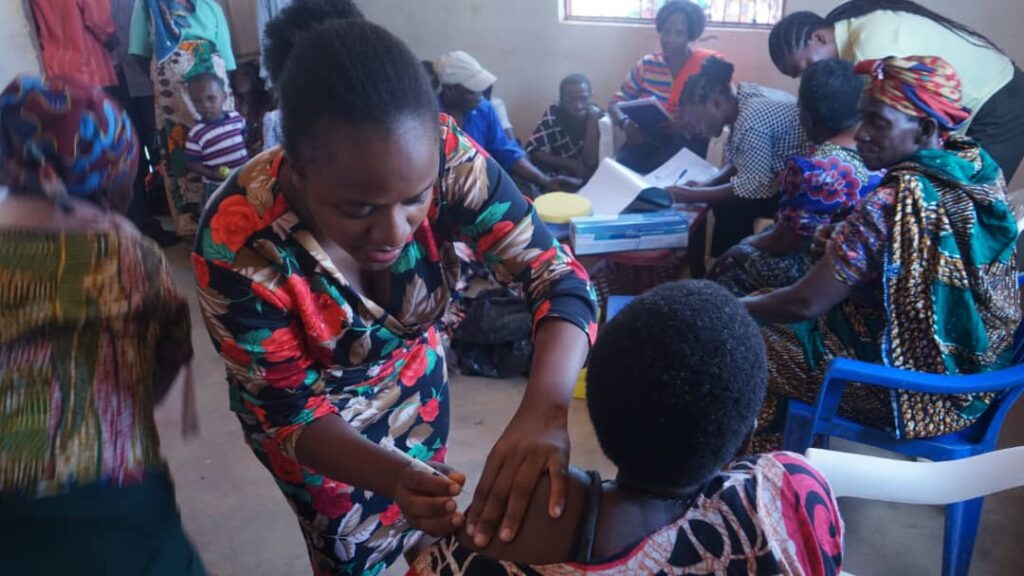
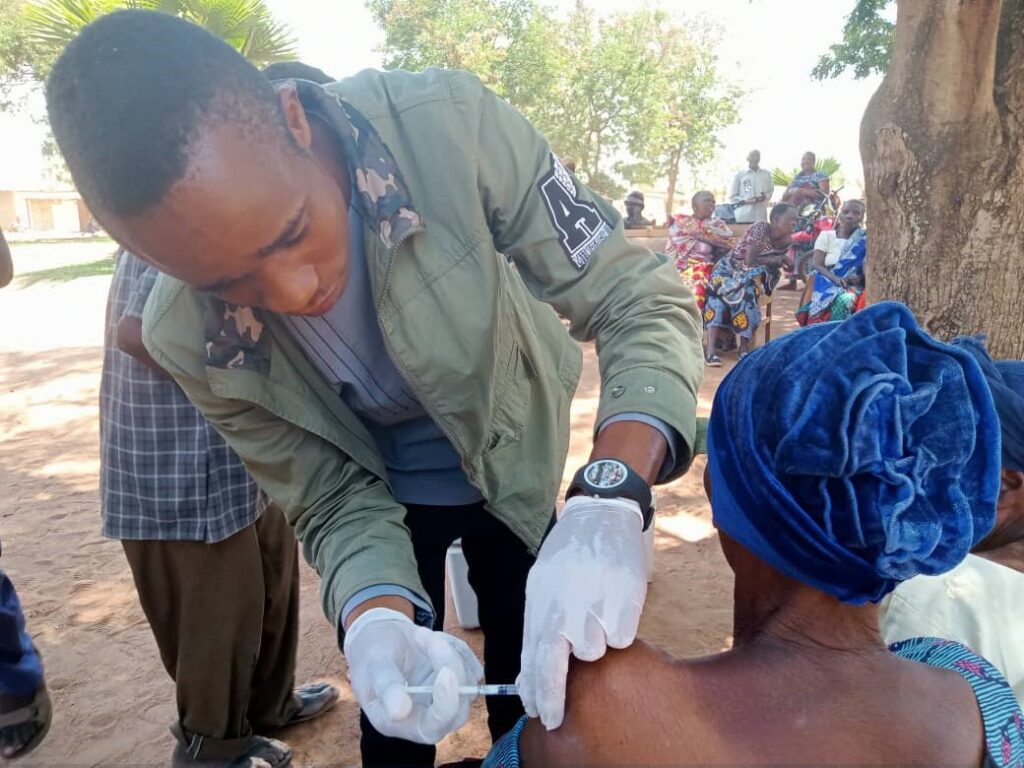
This was a sensitization project whose goal was to contribute to awareness creation and improvement of vaccination rate (30+% to 70% by December 2022 in Kahama Municipal Council, Ushetu, Msalala and Shinyanga District Councils. The project was funded UNFPA nad being led by HELP AGE TANZANIA. The initiative also intended to;
- Improve knowledge and skills on COVID-19 prevention
- Improve vaccination rate in the target Districts.
- Reduced stress among the older people, people with disability, women and youth and hence increased psychological wellbeing and household income.
- Improve personal hygiene.
- Improve timely health services and facilities.
PROJECT IMPACTS
- More than 150,000 target groups were vaccinated.
- 1360 target groups were reached through outreach services (Home bound, comorbidity and those with physical challenge)
OVERALL GOAL: To advocate for friendly policy and legal environments at local levels to ensure children, girls and women (Including girls and women with disability and Older Women) make safe choices regarding their sexual and reproductive health and rights, political, economic and social well-being, ultimately contributing to reduced vulnerability to all form of Gender Based Violence in order to promote gender equity and equality, with focus on ensuring that aforesaid groups enjoy favorable social norms, attitudes and behaviors at community, institutional and individual levels.
SPECIFIC OBJECTIVES
- Local government institutions implement reforms, strategies and policies in place to prevent or respond to Violence Against Women/Girls (e.g., reforms within the justice system to meet the needs of the most marginalized women)
- Women and girls improve access to friendly programs and services through sensitization of key local service providers in the areas of protection, family planning and violence as well as having opportunities to exercise leadership and participate in sustainable development humanitarian action and in sustaining peace.
- Individual (Reference groups) Communities are taking action to build a protective environment where children, girls and women’s rights are protected and valued
The project is implemented at Lyabukande Ward and is funded by Women Fund Tanzania-Trust (WFT-T)
The proposed intervention aims to address two key gaps:
- Ineffective mobilization and use of local community activists and survivors of violence as change agents: There have been passionate and powerful individual as well as champions who are not used properly to showcase their journey from being survivors to champions/change agents. There are also influential individuals/community members who are willing to use their time and resources to act as activists of the child rights. WEADO in collaboration with LGAs and CSOs proposes this shared responsibility (Holistic approach) as a prevention and rescue initiative that aims at mobilizing local activism (Individual and interpersonal), community leadership (Community) and institutional strengthening (Institutions and society) to effectively use their influence (Power), available resources, formal and informal rescue systems to prevent violence against children and women and support the survivors of violence and those who are at risk (Based on holistic and Feminist approach)
- Limited advocacy initiatives for the implementation of coordinated VAWC frameworks: Women and girls’ advocacy work on gender-based violence, discrimination and exclusion is growing as more organizations working with women and girls are engaging with local authorities clearly articulating their ‘asks’ on the basis of the national and global Implementation. Through alternative, community-based data collection mechanisms such citizen monitoring groups (CM), women and girls are able to generate evidence, although their ability to systematically analyze gender socio-economic and political trends and action to drive and adopt national agenda is often limited. The mechanisms seek accountability from communities and local institutions as women, girls and children are expected to be at the forefront as are often not organized to engage the process. Coordinated initiatives to implement the Five-year Regional Strategic Plan to End Violence Against Women and Children (RSP- VAWC 2020/21 –2024/2025) and the NPA-VAWC other Regional, Continental and Global efforts that are beneficial for women of all ages and girls require systematic but flexible advocacy processes supported by robust evidence. The experience from the past funded project revealed that girls’ women’s groups in collaboration with Citizen Monitors and CSOs at community level, play a pivotal role in providing accessible and trusted platforms for reaching out and engaging with diverse groups of girls and women, regardless of their age, as well as with the wider community and local council stakeholders to mindfully collect evidence to engage and achieve desired outcomes.
This is a behavioral change initiative whose goal is to raise community awareness to end all forms of harmful traditional practices and norms that disadvantage girls, women and people with disability. Specifically, the project aims to address GBV, CM, Violence and abuse against women and girls with disability and promote SRH inclusion. It is funded by SUOMI FINLAND and implemented at Kagongwa, Kilago, Nyasubi and Mhongolo (Kahama Municipal Council) & Talaga, Ukenyenge, Maganzo& Mwamalasa (Kishapu District Council).
